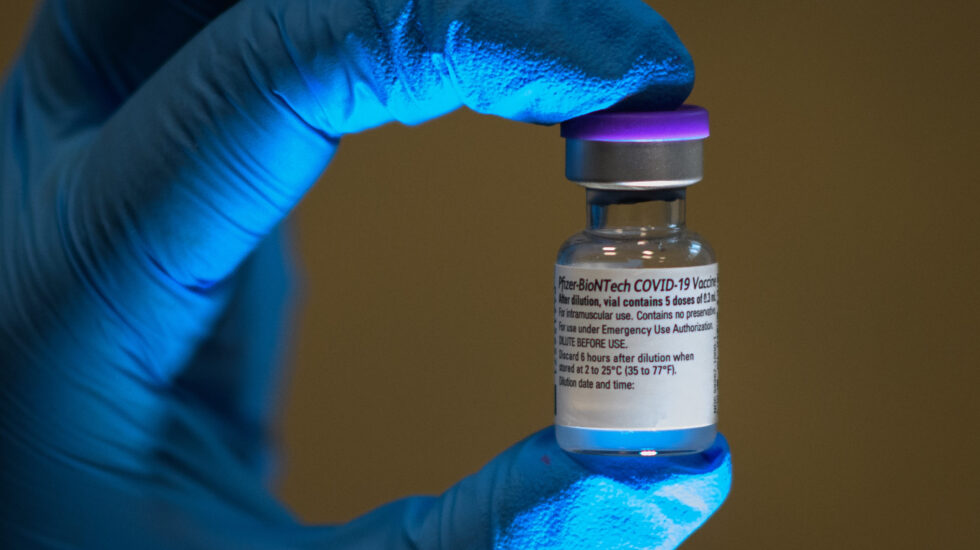Three doses of the Pfizer-BioNTech COVID-19 vaccine offers a high-level of protection against the omicron variant, the companies announced in a press release issued Wednesday.
Omicron also does not appear to significantly impact the body’s T-cell response, indicating that people who’ve received two doses of the vaccine still have some protection against severe disease.
However, two doses alone “may not be sufficient to protect against infection” the drugmakers warned. In individuals who received just two shots, lab testing demonstrates a 25-fold reduction in antibody levels against the Omicron variant compared to an earlier version of the virus.”
But a booster shot reestablishes a substantial level of protection. “According to the companies’ preliminary data,” explains the press release, “a third dose provides a similar level of neutralizing antibodies to Omicron as is observed after two doses against wild-type and other variants that emerged before Omicron.”
“Broad vaccination and booster campaigns around the world could help us to better protect people everywhere and to get through the winter season.” said BioNTech CEO Dr. Ugur Sahin. “We continue to work on an adapted vaccine which, we believe, will help to induce a high level of protection against Omicron-induced COVID-19 disease as well as a prolonged protection compared to the current vaccine.”
Americans seem to be processing the importance of receiving a booster shot. Nearly 48 million Americans have gotten a booster since August and vaccine distribution has ticked up in recent weeks to levels not scene since the spring.
Pfizer CEO Albert Bourla appeared on CNBC Wednesday morning and explained that the data released Wednesday comes from lab tests on a synthetic version of omicron. CNBC adds:
The ultimate proof is coming from real world data,” Bourla told CNBC. He said the companies need to know how many breakthrough infections occur and the severity of the cases in people who have received boosters compared to those who have had the two-dose initial series.
Bourla told CNBC the companies will have enough data by the end of the month to determine whether a booster dose is enough to fight omicron or if a new vaccine is needed. Pfizer and BioNTech expect to have a vaccine that specifically targets omicron available by March 2022.
CNBC continues:
Bourla said on Tuesday that omicron appears to cause milder symptoms, but seems to spreads faster and could lead to more mutations in the future.
“I don’t think it’s good news to have something that spreads fast,” Bourla told The Wall Street Journal during an interview at the paper’s CEO Council Summit. “Spreads fast means it will be in billions of people and another mutation may come. You don’t want that.



